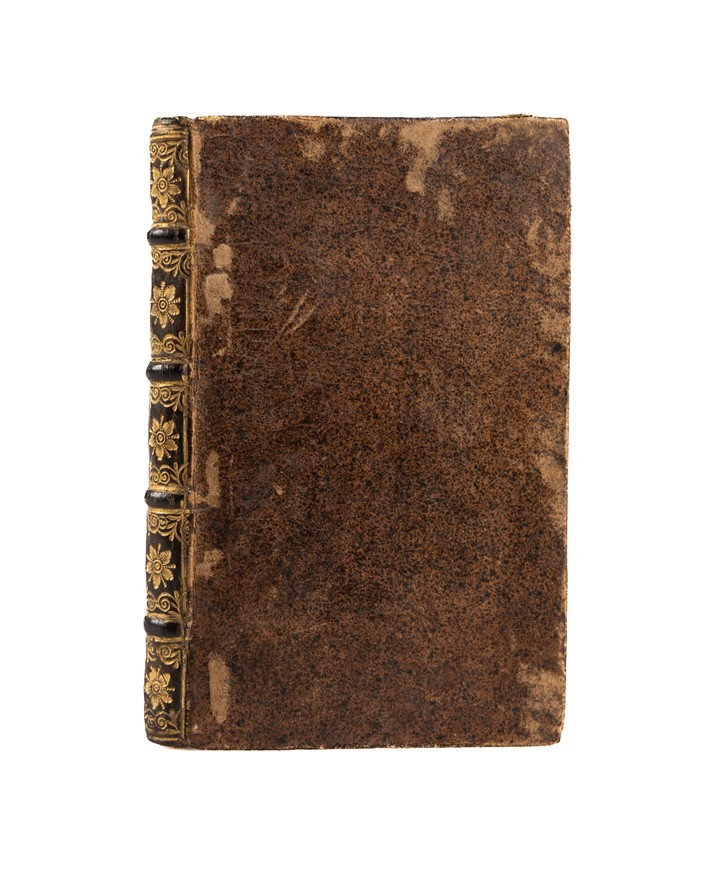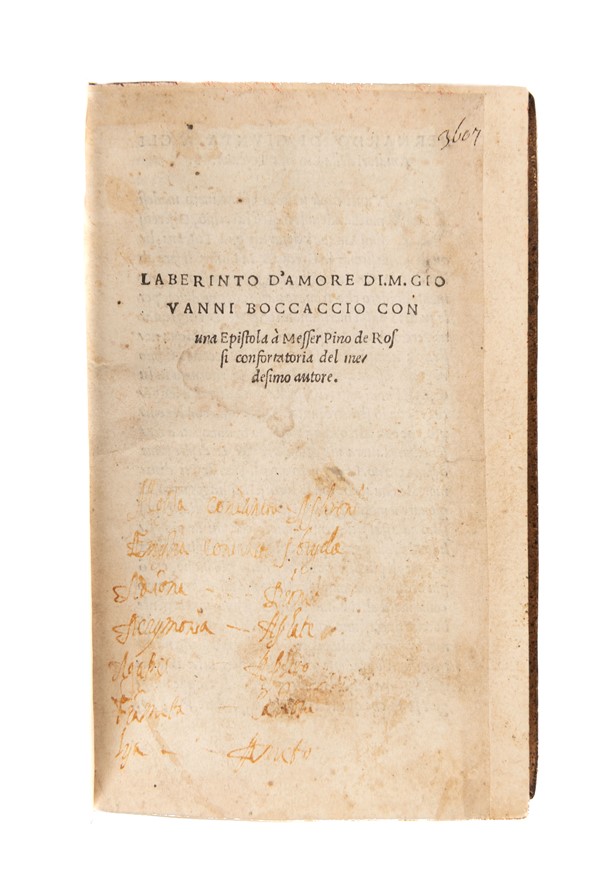Laberinto d'amore. Florence,
BOCCACCIO (1516)
£1250.00
Please contact us in advance if you would like to view this book at our Curzon Street shop.
Historiated woodcut initial.
8vo (150 x 90mm). 72ff. Eighteenth-century speckled calf, spine gilt in compartments with floral stamps, speckled edges (scuffing to boards).
Florence, [Filippo Giunta],
Uncommon first Giunta edition of the Laberinto d’amore, ‘the Labyrinth of Love’, also known, as explained in the title of f.2v, as “il Corbaccio” — the crow. The opening letter is by Filippo di Giunta's son Bernardo, addressed to 'lovers of the Tuscan language'; the final letter is that addressed by Boccaccio to Pino de' Rossi.
The title - which some have noted is practically an anagram for the name Boccaccio - sets the tone for this confusing work. Having survived the plague and penned the Decameron, Boccaccio's controversial work tells the story of a man tortured by a lover jilting him. In despair, he has a long dream sequence in which a Dantean guide (in the form of his beloved’s late husband) warns him of her wicked ways and eventually helps him to move on and escape the ‘labyrinth of love’, freeing him from his torment.
Misogynistic in sentiment to modern audiences, it is a departure from much of his other writing. Some think it a bitter response to the author's own jilting, while the open question of who ‘the crow’ may be referring to and Boccaccio’s history of treating women’s sexual power positively leaves open the possibility of this being a commentary of the protagonist’s misogyny. Either way, it is a strange piece, very clearly inspired by Boccaccio’s beloved Dante.
Provenance: Bookplate of Piero Buscaroli, likely the famous Italian musicologist and essayist (1930-2016) with the Latin motto ‘ex fascibus fasces’, which could roughly be translated as ‘sticks from sticks’. Repurposed by Buscaroli from a motto and engraving originally from a book by Spanish writer Diego de Saavadra Fajardo (1584-1648), it accompanied an essay on how a prince should treat his people, and seems to carry ideas of cultivation, husbandry, and education—even re-creation.
First two leaves with significant repairs to outer margins, first with additional repairs at head and foot.
CNCE 6241. Adams B-2125. Gamba 178.
OCLC: US: Yale, Miami, UPenn. UK: Cambridge, BL, Cardiff.
Stock Code: 42614





